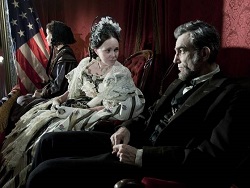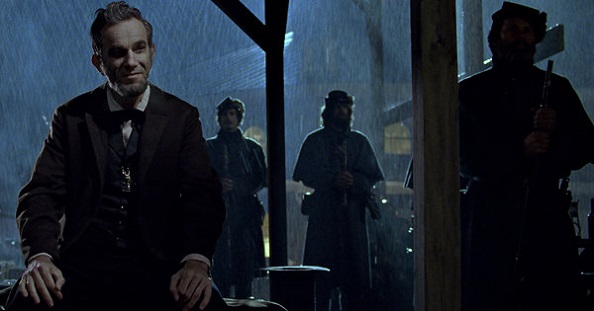
Director: Steven Spielberg
Written by: Tony Kushner (screenplay), Doris Kearns Goodwin (book)
Starring: Daniel Day-Lewis, Sally Field and David Strathairn
Genre: Biography | Drama | History
MPAA: PG-13
Synopsis: As the Civil War continues to rage, America’s president struggles with continuing carnage on the battlefield and as he fights with many inside his own cabinet on the decision to emancipate the slaves.


Despite the subject of the film being a surprise, the acting was an expectant relief. Daniel Day-Lewis has always been a brilliant actor and gives another amazing performance portraying Abraham Lincoln. His appearance, the way he moves, his vocal diction, and even simple mannerisms all encompass the spirit of what President Lincoln represented. In fact, his performance is so good that he overshadows anyone else who shares screen time with him during the film. The isolated screen time that supporting cast members do have is so short lived that it is difficult for them to establish the characters they are portraying. I left the film knowing very little about the supporting cast outside of their involvement with the ratification of the 13th amendment.
The acting was brilliant and remained consistent with a well depicted, dark and ominous setting. If the character and plot development remained as consistent, this would have been a superb film. Instead, the film remained in a stagnant loop at times with redundant discussions of the same topics. Although Daniel Day-Lewis gave a masterful performance, it would have been great to see that applied to strengthening the development of his character. This film will probably receive its fair share of Oscar buzz but I feel it will be due to the formulated approach of meeting the Academy’s systematic criteria. “Lincoln” was worth a viewing but I don’t think I could sit through it a second time.
Lincoln – 6.0 out of 10.
Brilliant acting surrounded by a repetitious history lesson.







Agree completely with your final sentence. Watchable…but not RE-watchable.